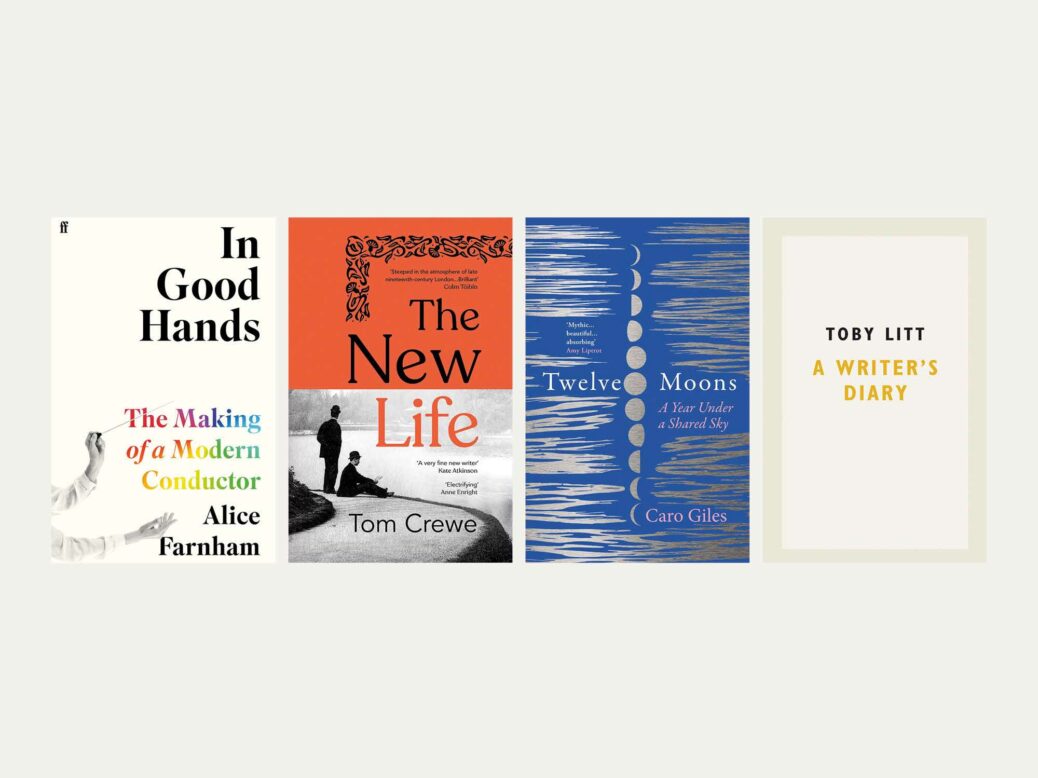
Twelve Moons: A Year Under a Shared Sky by Caro Giles
HarperNorth, 304pp, £14.99
If Little Women had been written from the perspective of Marmee March – and Marmee was undergoing a divorce in the 21st-century Northumberland countryside – then it might have read a lot like Caro Giles’ Twelve Moons. This sea-swept memoir from the winner of BBC Countryfile magazine’s 2021 New Nature Writer of the Year award documents Giles’ life as a single mother with four young girls: the Mermaid, the Whirlwind, the Caulbearer and the Littlest One. Her daughters are her main protagonists, but the writing itself, done in stolen candlelit hours over the course of a year, also becomes an act of self-care that enables Giles to nurture her children’s sense of self without losing her own.
Battles with illness, finances, bureaucracy and a broken heart all threaten to undo their tight-knit family unit, which seems as fragile as it is bold – but an insistence on making time for sensory, immersive experiences (from sea-swimming to singing) creates tides that pull them repeatedly back together. The result is a reminder of motherhood’s tyrannous altruism, both selfless and dictatorial, and of how nature’s changing constants – the moon, sea and seasons – can re-root us even during the hardest emotional storms.
By India Bourke
In Good Hands: The Making of a Modern Conductor by Alice Farnham
Faber & Faber, 320pp, £16.99
Conducting, Alice Farnham writes, is an “elusive art”. Her book, part memoir and part study of the craft, pins it down. Farnham, whose formidable credits include the Royal Opera House and the Royal Ballet, describes just how one conducts in accessible, engaging language. She offers insights into music-making and from these emerge a theme of harmony: how a group of expert individuals work together to create something brilliant. That process allows for plenty of amusing anecdotes. On the job of opera prompting (the person who squeezes into a box underneath the stage to give cues), she writes: “When I conducted a group of primary schoolchildren who had never sung with an orchestra before, it felt incredibly like prompting some of the most famous singers in the world.”
She writes too about how women have been discouraged from the podium. There has been a lack of role models (more than 90 per cent of established conductors are male), as well as outright sexism. Thankfully, Farnham’s work to change this through early training is starting to ease this inequality.
By Matthew Gilley
The New Life by Tom Crewe
Chatto & Windus, 384pp, £16.99
Tom Crewe’s exhilarating debut novel is a fictionalisation of an early movement for gay rights. It’s 1894 and John Addington and Henry Ellis (both based on real people) are collaborating on Sexual Inversion, a book that celebrates homosexuality as a natural phenomenon. Addington has suffered so much from living in secret that he is prepared to out himself as a gay man. Ellis lives apart from his wife, Edith, a lesbian; together they are members of the Fellowship of the New Life, the forerunner of the Fabian Society. The authors are excited for the change their radical work might bring about, until Oscar Wilde’s conviction for gross indecency unnerves them.
Addington and Ellis argue for a noble cause, but Crewe, an editor at the London Review of Books, does not allow them to be idols. They can be jealous, selfish and lustful, obsessing over intellectual arguments (the works of Walt Whitman and the ancient Greeks feature often) rather than considering how their choices will affect their loved ones. This complexity of character makes The New Life an adroit novel of ethics. “Her face injured him with its familiarity,” Crewe writes of Catherine, Addington’s wife. “‘I did not marry for this,’ she said.”
By Ellen Peirson-Hagger
A Writer’s Diary by Toby Litt
Galley Beggar Press, 400pp, £10.99
“Write what you know plus Stay in your lane equals Keep a diary,” writes a novelist and creative writing tutor named Toby in his new journal – so this he does. As the days progress, his entries reveal that he has a mother with cancer, a wife who is pregnant, students who are competitive, and a physical world that is small. Few readers, he suggests, are really interested in the latest fiction: “Another novel, however good, is just another novel.” What they really want to know about is the inspiration behind it, what it is like having no boss… what, in essence, it is like to be a writer.
So, Toby Litt, the novelist, creative writing tutor and author of this diary – which may be real or not – obliges. He fills his pages with Nicholson Baker-like minutiae and mental doodles; he muses on Apple computers and the nature of his desk (“my dwelling”), but also on the people he loves and his fears and hopes for them. There is no real narrative to this mixture as the year unfolds, but the mundanities are necessary for the profundities to emerge organically and often touchingly.
By Michael Prodger
Purchasing a book may earn the NS a commission from Bookshop.org, who support independent bookshops
[See also: Bret Easton Ellis’s death wish]
This article appears in the 11 Jan 2023 issue of the New Statesman, Burning down the House of Windsor





